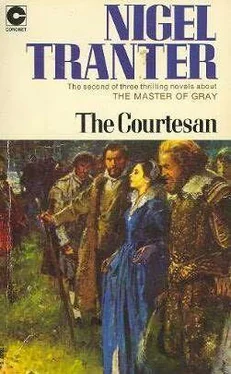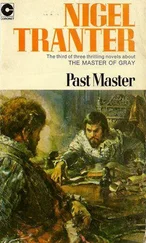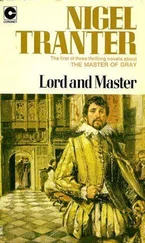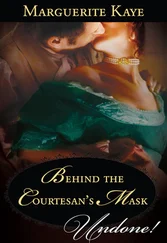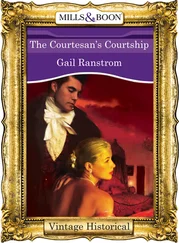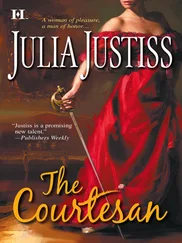Nigel Tranter - The Courtesan
Здесь есть возможность читать онлайн «Nigel Tranter - The Courtesan» весь текст электронной книги совершенно бесплатно (целиком полную версию без сокращений). В некоторых случаях можно слушать аудио, скачать через торрент в формате fb2 и присутствует краткое содержание. Жанр: Исторические приключения, на английском языке. Описание произведения, (предисловие) а так же отзывы посетителей доступны на портале библиотеки ЛибКат.
- Название:The Courtesan
- Автор:
- Жанр:
- Год:неизвестен
- ISBN:нет данных
- Рейтинг книги:4 / 5. Голосов: 1
-
Избранное:Добавить в избранное
- Отзывы:
-
Ваша оценка:
- 80
- 1
- 2
- 3
- 4
- 5
The Courtesan: краткое содержание, описание и аннотация
Предлагаем к чтению аннотацию, описание, краткое содержание или предисловие (зависит от того, что написал сам автор книги «The Courtesan»). Если вы не нашли необходимую информацию о книге — напишите в комментариях, мы постараемся отыскать её.
The Courtesan — читать онлайн бесплатно полную книгу (весь текст) целиком
Ниже представлен текст книги, разбитый по страницам. Система сохранения места последней прочитанной страницы, позволяет с удобством читать онлайн бесплатно книгу «The Courtesan», без необходимости каждый раз заново искать на чём Вы остановились. Поставьте закладку, и сможете в любой момент перейти на страницу, на которой закончили чтение.
Интервал:
Закладка:
He nodded, and went like a child.
Chapter Twenty-one
ON 29th December 1591, King James signed a decree ending the banishment of his trusty and well-beloved councillor and Lieutenant of the North, George Gordon, Earl of Huntly, Lord of Strathbogie, Enzie, Badenoch and Aboyne, and summoned him to Court at the Castle of Edinburgh with all haste, duly accoutred and equipped for the sure defence of his sovereign lord and fast friend, James R. And on the first day of January 1592, the Cock o' the North rode in through the West Port of the city, with a mere token tail of two hundred Gordon swordsmen at his back, and the hearty assurance that there were plenty more where these came from, and indeed on the way. The citizens looked on askance, silent; the Kirk groaned in spirit; Mr. Bowes, the English envoy dispatched an urgent courier to Walsingham. But the Catholics rejoiced, and the sentinels up on the grim walls and turrets of Edinburgh Castle relaxed a little their anxious southwards vigil. Bothwell, reading the signs aright, turned and retired to his castle of Hermitage, deep in the Border fastnesses.
So Huntly strutted the stage again, and Edinburgh resounded to bagpipe squeals, strange Gaelic oaths, and the skirls of women outraged or prepared to be. The Court, after an interval, moved back mankfully to Holyroodhouse, and Catholic lords unseen for years, like Enroll, Crawford, Montrose and Seton appeared thereat. Bishops and prelates crept out from their holes and corners; Chancellor Maitland sank back like a snail into its shell; the witch trials came to an abrupt halt. Patrick Gray stood, debonair and smiling, close to the King's ear – none closer.
The delicate scales of Scottish politics teetered to a precarious balance, once more. None anticipated that they would do so for long, however assured seemed the urban Master of Gray. Men watched and waited.
James, temporarily lacking witches to justify, was at something of a loose end. He had ever been rather more fond of horseflesh than the human variety, and the death of his Master
Stabler, one John Shaw, and the loss of some of his favourite mounts in the Bothwell raid, caused him great concern and presently a return to poetry. He wrote a sonnet to commemorate the Stabler's gallant end, the first gesture towards the Muse in a full year, and roused himself to such heights of indignation and passion in the process that nothing short of some sort of demonstration and physical action against the perpetrator of the outrage would relieve his emotions. After consultation with the Master of Gray he first held a ceremony to divest Bothwell of his great office of state, that of Lord High Admiral, and promptly bestowed it upon the reluctant and embarrassed Duke of Lennox who so gallantly had brought the citizens of Edinburgh to the royal rescue. And secondly he mounted an expedition to the Borderland, January though it was, to display to that unruly and disobedient area who ruled in this realm of Scotland. With a mixed but strongly armed force consisting of the Royal Guard, Gordons, city levies and retainers of various lords, James in person made a hurried excursion southwards. Admittedly he confined his attentions to the East March, whilst Bothwell was known to be at Hermitage in the west, and after burning a few peel-towers and hanging some rievers and mosstroopers who were always the better for such firm treatment, hastened back to Edinburgh before Bothwell could do anything substantial about it – much to the disappointment of Huntly who was congenitally in favour of such entertainment, of Johnny Mar who enjoyed being Captain of the Guard, and even of Ludovick, who felt that a demonstration of the royal authority was overdue, whatever the risks. But James was adamant. A four-day expedition was quite adequate; moreover he had fallen into the Tyne in crossing that rain-swollen river of the Debatable Land, and was in dire alarm at catching cold in consequence.
Patrick Gray had excused himself from this martial adventure, on grounds of pressure of work. Nevertheless, the King's company was not half-a-day on its way when he took horse, with his hard-riding cousin Logan of Restalrig as companion, and headed southwards into the hills himself, although in a rather more westerly direction. He was back two days later, tired but good-humoured, only a day before his sneezing monarch.
James, despite aches and shivers, was much uplifted in spirit by this warrior-like gesture, and from his foot-baths and doctorings issued strong and manly pronouncements on the stern duties of kings and their subjects and the inescapable punishment and doom of all malefactors, especially those in high places. In some glee he sent a long letter to his royal cousin of England, acquainting her of his escape from enemies unfortunately supported by those who should know better, and of his strong measures against Bothwell on their mutual frontier, at which he was sure she would rejoice – mentioning, in passing, that his long promised English dukedom had still not materialised and would not this be a most suitable occasion for its bestowal? Patrick Gray enclosed a more cryptic covering-note of his own.
In this uplifted and magnanimous mood, the King was pleased to reconsider a petition to which he had hitherto been determinedly opposed, despite Patrick's generous and disinterested pleas. The Countess of Moray had unfortunately died, back in November, of some unspecified female ailment, and Moray had requested royal permission to come south to Donibristle to bury her – for in her sickness she had not accompanied her husband to the north and his banishment. Now, on Patrick's representations that it would please the Kirk, which was becoming ever more restive under increasing Catholic advancement – for Moray had ever been a favourite in that quarter – and moreover might help to keep Huntly from becoming so arrogant as to be unbearable, James relented. Moray might return to Donibristle, but no further; he must not cross the Forth or come to Court. The Queen, although she listened to their conversation, made no pleas of her own.
Mary, back at her duties in the Queen's household, watched and wondered.
On the last day of January, she overheard Patrick telling Anne that the new tapestries in the Flemish style that he was having woven for her were finished and it only required Her Grace's own decision as to which rooms of her house at Dunfermline each would best enhance. A short visit to Fife, perhaps…? Mary's heart sank within her. She might have known. Was there to be no end to it? Were they back where they had been, so soon? Patrick was inexorable, to be diverted by nothing and nobody. Or was she but imagining evil, treachery? Seeing menace in the most innocent of actions? Had she reached the stage of suspecting Patrick's every move, however much she claimed to understand him? If so, how much was her vaunted love worth? She was weary, weary of it all; she could shut her eyes to that no longer. There it was, then; she was weary, but Patrick was not. The day that Patrick Gray wearied of his sport, his game with men, he would be dead. She knew it now.
Weary, imagining things, or not, she went to Ludovick forthwith and told him what she had heard and what she feared. If the Queen decided to go to Dunfermline would he be sure to go with her, scarce leave her side, she demanded.
'Again?' he sighed. 'I had thought to have finished with that. I find her passing dull, Mary. And all will say that I but follow you, who will be in Anne's train. That it is you that I follow, not her.'
'Let them say it. Better that they should. Indeed, I could entice you to do so. Before others. Before the King if need be. Persuade you. So that your coming will seem the less strange.'
'And have yourself named courtesan!' he exclaimed, frowning.
'Why not? I am so named already, I have no doubt. I care not, so long as I know what I am. And you do, likewise. If that I am to be called, let the name have its uses.'
Читать дальшеИнтервал:
Закладка:
Похожие книги на «The Courtesan»
Представляем Вашему вниманию похожие книги на «The Courtesan» списком для выбора. Мы отобрали схожую по названию и смыслу литературу в надежде предоставить читателям больше вариантов отыскать новые, интересные, ещё непрочитанные произведения.
Обсуждение, отзывы о книге «The Courtesan» и просто собственные мнения читателей. Оставьте ваши комментарии, напишите, что Вы думаете о произведении, его смысле или главных героях. Укажите что конкретно понравилось, а что нет, и почему Вы так считаете.
